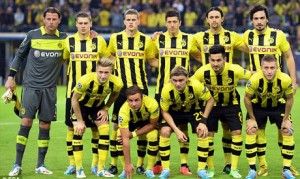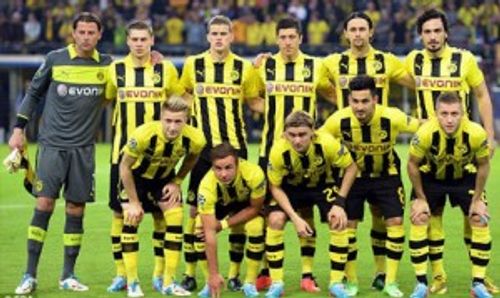
Borussia Dortmund since the 1990s – Rise, fall and resurgence

Be it basking in the glory of trophies, sinking to the brink or strategically planning and bouncing back, German top division football club Borussia Dortmund, popularly addressed as BVB, has seen it all. The 1909 founded club, which was lesser known to the current generation of young footballistas, has made its mark in the football world again, this time in grand fashion.
Some of the veteran fans of the beautiful game would know that BVB was a resilient force in the 1990s, flaunted by their influential manager, Ottmar Hitzfeld. Before the 90s, BVB was a relatively average football institution, marked by a series of financial problems and fights against relegation. But then came the 1990s, and BVB had had enough. During the 90-91 season, BVB were in a disappointing 10th position and prevailing manager Horst Koppel was shown the door. Hitzfeld was appointed as the new manager and he had a daunting task ahead.
He proved soon that he was here to shine. BVB were runners-up in the league in 91-92,failing to win the league, owing to an unlucky last fixture win by fellow contenders VFB Stuttgart. In the next year, BVB made it to the final of the UEFA Cup final, where they lost to the mighty Juventus. But due to the German prize money pool system prevalent at that time, funds came to BVB and they used it judiciously to obtain the services of new faces. Good times followed and BVB were league winners in both the 94-95 and 95-96 seasons. The ultimate glory came in the 96-97 season when BVB were crowned Champions League winners after defeating the Old Lady 3-1. This glory was followed by defeating Brazilian club Cruzeiro and becoming the world club cup champion, then known as the Intercontinental Cup.
This was followed by a couple of average seasons, until in the 2001-02 season, BVB won back the Bundes Liga and reached the finals of the UEFA Cup, where they lost to Feyenoord Rotterdam of Holland. Bad financial decisions followed and misleading administrative moves led to loss of revenue and BVB went into considerable debt. BVB’s home stadium Westfalenstadion had to be renamed as Signal Iduna Park after a 10 year long deal with an insurance company to generate funds. Bayern Munich helped by giving a loan of 2mil Euros. Sale of players like David Odonkor and Tomas Rosicky recovered a part of the lost funds.
BVB slowly turned into a mediocre club with mid table finishes being a regular outcome and lacked any serious impact on the footballing world. They somehow escaped bankruptcy in 2006 by entering into a contract with Morgan Stanley. Their only accolade worth mentioning was being runners-up to Bayern Munich in DFB Pokal (German Cup) in 2007-08 season. The current manager Thomas Doll handed over his resignation on May, 2008 and the services of a certain erstwhile FC Mainz player Jurgen Klopp were beckoned. A huge task lay ahead of Klopp.
Klopp knew very well that the basic blueprint of the team had to change. He focused mainly on youth players who emphasized more on fast, end to end and free flowing football. New strategies and way of playing the beautiful game were implemented and results started coming gradually. BVB came 5th in the 2009-10 season and secured a UEFA Europa League spot. The following season brought more smiles as BVB were Bundes Liga winners with a considerably inexperienced side. Paraguay’s Argentina born striker Lucas Barrios was top scorer with 16 goals and displayed an inspiring performance. Following season was a test for Klopp and his boys as BVB had to eradicate the myth of not being able to hold to success. BVB successfully defended the Bundes Liga in 2011-12 season with a record breaking 81 league points. But it unfortunately had to bow of the group stages of the UEFA Champions League. Fortunes were reverted the following season when BVB reached the finals of the Champions League 2013 in Wembley. Though it fell second best to Bayern Munich both in the Bundes Liga (2nd position in the league after Bayern Munich) and the Champions League(runners up in the Champions League, losing 1-2 to Bayern Munich), the fairytale rise from the ashes was now complete and the entertaining football display has etched marks on football fans all over the world. The footballing fraternity, especially BVB fans, was even happier when Klopp extended his contract till June 2018. Our hopes would be on BVB, now a major force of Europe, to keep entertaining us and win laurels both in the club and the individual levels.